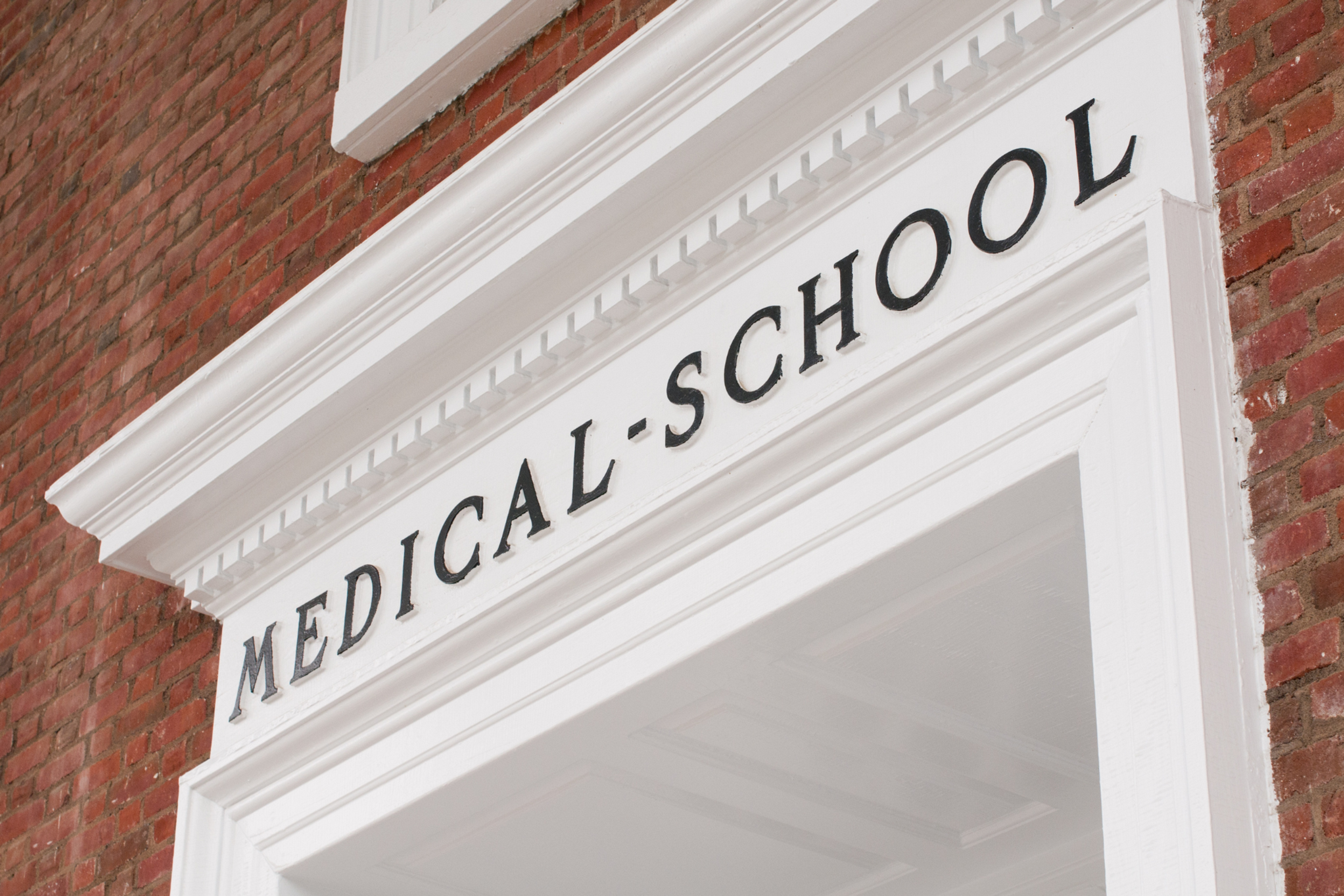The Top 10 Medical Schools in Canada
Discover the top 10 medical schools in Canada and explore their unique programs, esteemed faculty, and cutting-edge research opportunities.
Posted March 6, 2025

Table of Contents
Canada is known for its high-quality education system, and this is no exception when it comes to medical schools. With a focus on providing cutting-edge research, experiential learning, and comprehensive training, Canadian medical schools are highly sought after by aspiring doctors from around the world. In this article, we will explore the top 10 medical schools in Canada and what sets them apart from the rest.
Top Medical Schools in Canada
When it comes to choosing a medical school, reputation and ranking play a crucial role. The following medical schools have consistently ranked among the top institutions in Canada:
1. University of Toronto
The University of Toronto's Temerty Faculty of Medicine is one of the oldest and most prestigious medical schools in Canada. It offers a wide range of programs and is known for its cutting-edge research and innovative teaching methods. The faculty is home to world-renowned experts in various medical fields, providing students with unparalleled learning opportunities.
See their full programs here.
2. McGill University
McGill University'sFaculty of Medicine and Health Sciences is renowned for its commitment to excellence in medical education and research. Located in Montreal, Quebec, the faculty attracts students from across the country and around the world. With state-of-the-art facilities and a diverse student body, McGill offers a vibrant and stimulating learning environment.
See their full programs here.
3. University of British Columbia
The University of British Columbia's Faculty of Medicine is known for its strong emphasis on interdisciplinary collaboration and community engagement. Students at UBC have the opportunity to learn from leading experts in various medical specialties and gain hands-on experience through clinical placements in urban and rural settings.
See their full programs here.
4. University of Ottawa
The University of Ottawa's Faculty of Medicine is recognized for its bilingual curriculum, which prepares students to provide healthcare in both English and French-speaking communities. The faculty is committed to promoting diversity and inclusivity in medical education and offers unique programs that integrate clinical skills with social accountability.
See their full programs here.
5. Queen's University
Queen's University's School of Medicine is known for its small class sizes and personalized learning experience. Located in Kingston, Ontario, the school offers a supportive and collaborative environment where students can develop strong relationships with faculty members and fellow classmates.
See their full programs here.
6. University of Alberta
The University of Alberta's Faculty of Medicine and Dentistry is a leader in medical education and research. The faculty is known for its strong focus on patient-centered care and offers a wide range of programs, including an innovative MD/PhD program for students interested in pursuing a career in academic medicine.
See their full programs here.
7. University of Calgary
The University of Calgary's Cumming School of Medicine is committed to training compassionate and competent physicians who are equipped to meet the healthcare needs of diverse populations. The school offers a comprehensive curriculum that integrates basic science, clinical skills, and professional development.
See their full programs here.
8. University of Western Ontario
The University of Western Ontario's Schulich School of Medicine & Dentistry is known for its strong emphasis on research and innovation. The school collaborates with local hospitals and research institutes to provide students with unique research opportunities and fosters a culture of curiosity and discovery.
See their full programs here.
9. University of Manitoba
The University of Manitoba's Max Rady College of Medicine is committed to addressing the healthcare needs of underserved populations, particularly those in rural and remote areas. The college offers a comprehensive curriculum that emphasizes community-based learning and provides students with the skills and knowledge to make a positive impact on the health of their communities.
See their full programs here.
10. University of Montreal
The University of Montreal's Faculty of Medicine is one of the largest medical schools in Canada and is renowned for its strong emphasis on clinical training. The faculty has partnerships with numerous hospitals and healthcare institutions, providing students with a wide range of clinical experiences and exposure to diverse patient populations.
Program Features
One of the key reasons why these medical schools stand out is their comprehensive program features. These schools offer a combination of theoretical and hands-on learning, allowing students to develop the necessary skills and knowledge to excel in the medical field. The curriculum is designed to cover all essential aspects of medicine, including anatomy, physiology, pathology, and clinical skills.
These schools have state-of-the-art facilities, including research labs, simulation centers, and teaching hospitals. This enables students to engage in groundbreaking research and gain invaluable clinical experience throughout their training.
When it comes to theoretical learning, these medical schools go above and beyond to provide students with a solid foundation in medical knowledge. The curriculum is carefully crafted to include in-depth lectures, interactive seminars, and engaging workshops. Students have access to a wide range of resources, including textbooks, online databases, and medical journals, to enhance their understanding of medical concepts.
Hands-on learning is a crucial aspect of these medical programs. Students have the opportunity to apply their theoretical knowledge in practical settings, such as anatomy labs and simulation centers. These labs are equipped with cutting-edge technology and anatomical models, allowing students to explore the intricacies of the human body and develop their clinical skills.
These medical schools understand the importance of research in advancing medical knowledge. They provide students with ample opportunities to engage in research projects, collaborate with renowned faculty members, and contribute to scientific publications. Research labs are equipped with state-of-the-art equipment and resources, enabling students to conduct experiments and make significant contributions to their respective fields.
In addition to research opportunities, these medical schools also prioritize clinical experience. Students have the privilege of training in teaching hospitals, where they work alongside experienced physicians and healthcare professionals. This hands-on experience allows students to observe and participate in real-life medical scenarios, honing their diagnostic and treatment skills.
These medical schools understand the importance of interprofessional collaboration in healthcare. They provide students with opportunities to work in interdisciplinary teams, fostering effective communication and teamwork skills. Through collaborative projects and case-based learning, students learn to approach patient care from a holistic perspective, considering various healthcare disciplines.
Overall, these medical schools offer comprehensive program features that go beyond traditional classroom learning. They provide students with the necessary tools, resources, and experiences to become competent and compassionate healthcare professionals. Whether it's through theoretical lectures, hands-on labs, research opportunities, or clinical experience, these programs are designed to shape well-rounded and future-ready medical professionals.
Read: How Many Hours of Research for Medical School? A Comprehensive Guide
Admission Standards
Admission to these top medical schools is highly competitive. They seek candidates who not only possess excellent academic records but also demonstrate a genuine passion for medicine. The application process typically involves submitting transcripts, letters of recommendation, and a personal statement outlining the candidate's motivations and aspirations.
Additionally, many of these schools require applicants to complete the Medical College Admission Test (MCAT) and participate in interviews as part of the selection process. The rigorous admission standards ensure that only the most dedicated and qualified candidates are admitted, fostering a highly motivated and talented student body.
When it comes to academic records, these top medical schools look for candidates who have excelled in their coursework, particularly in the sciences. A strong foundation in biology, chemistry, physics, and mathematics is essential for success in medical school. Admissions committees carefully review applicants' transcripts to assess their academic abilities and potential.
However, academic excellence alone is not enough to secure a spot in these prestigious institutions. Medical schools also value candidates who demonstrate a genuine passion for medicine. They want to see applicants who have actively sought out opportunities to engage with the medical field, whether through volunteering at hospitals, shadowing physicians, or conducting research in the biomedical sciences.
The personal statement is a crucial component of the application process. It allows candidates to showcase their unique experiences, motivations, and aspirations. Admissions committees are interested in understanding why applicants have chosen a career in medicine and how they envision making a positive impact in the field. A well-written personal statement can set an applicant apart from the competition and demonstrate their commitment to the profession.
In addition to the application requirements mentioned above, many top medical schools require applicants to take the Medical College Admission Test (MCAT). This standardized exam assesses a candidate's knowledge of the natural, behavioral, and social sciences, as well as their critical thinking and problem-solving skills. Scoring well on the MCAT is essential for demonstrating readiness for the rigorous curriculum of medical school.
Once applicants have met the initial requirements, they may be invited to participate in interviews. These interviews provide an opportunity for the admissions committee to assess an applicant's interpersonal skills, communication abilities, and professionalism. It is crucial for candidates to prepare thoroughly for these interviews, as they can greatly influence the final admissions decision.
Overall, the admission standards of these top medical schools are designed to select individuals who not only have the academic aptitude but also possess the qualities necessary to become compassionate and competent physicians. The process is highly competitive, but for those who are admitted, it is the first step towards a rewarding and fulfilling career in medicine.
Student Experience
A strong emphasis is placed on creating a supportive and enriching student experience at these medical schools. Faculty and staff are committed to providing mentorship and guidance to help students thrive academically and personally. Students have access to various resources, including study groups, research opportunities, and extracurricular activities.
The collaborative and diverse learning environment cultivates teamwork and a sense of community among students. This not only facilitates knowledge sharing but also prepares future doctors to work effectively in interdisciplinary healthcare teams.
Start Preparing for Medical Education in Canada Today
If you aspire to study medicine in Canada, it's important to start preparing early. Strong academic performance in science-related subjects, such as biology, chemistry, and physics, is essential. Engaging in volunteer work, research projects, and clinical experiences can also enhance your application and demonstrate your commitment to the field.
Additionally, familiarizing yourself with the admission requirements of each medical school and preparing for the MCAT can significantly increase your chances of being accepted into your desired program.In conclusion, pursuing medical education in Canada offers a wealth of opportunities for aspiring doctors. The top 10 medical schools in Canada provide a high-quality education, comprehensive program features, and a supportive learning environment. By meeting the rigorous admission standards and preparing adequately, you can position yourself for success in one of these esteemed institutions.
Read: The Journey to Becoming a Doctor: Skills, Education, and Commitment












